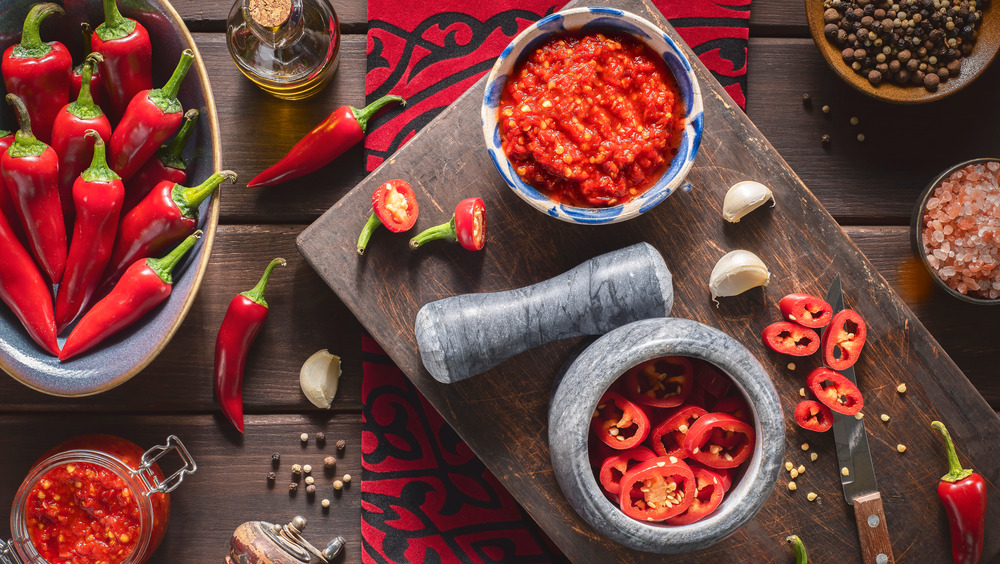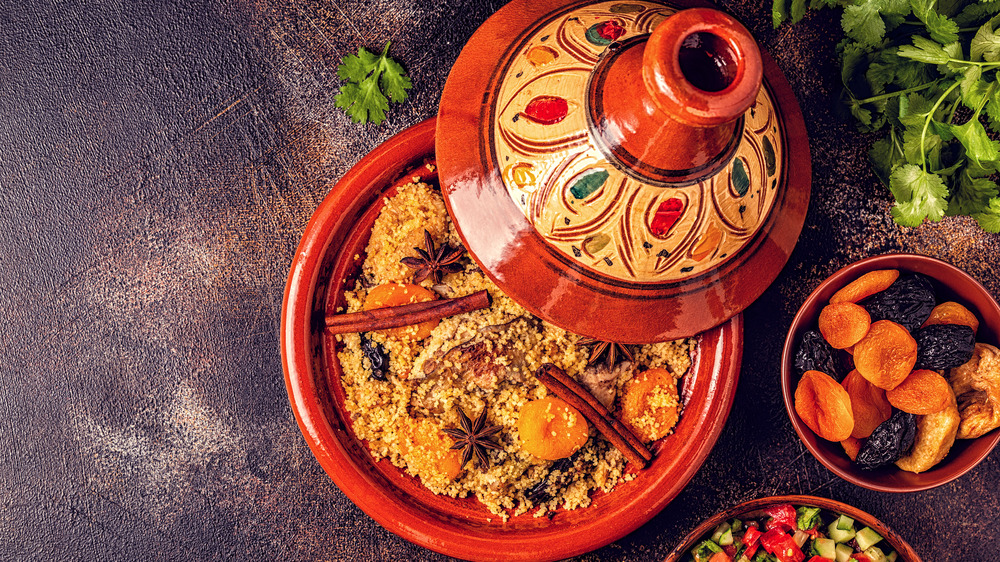The Spicy Condiment You Should Be Adding To Everything, According To Chefs
If you're regularly cooking at home, it can be easy to find yourself lacking inspiration on some days. You might be rotating through the same recipes, using similar spices on repeat, and boring your taste buds over time. What you need is a spicy, versatile condiment to add some pizzazz to the monotony. It's time to welcome harissa into your repertoire for a huge increase in flavor.
Harissa originated in Tunisia and made its way to the surrounding countries in the Maghreb region of Africa, including Morocco, Libya, and Algeria (via Spiceography). According to Chili Plant, the capsicum pepper was brought to North Africa during the Spanish occupation in the 16th century. It was able to adapt to the Mediterranean climate, and locals immediately began to use it in their own recipes.
The word harissa comes from the Arabic verb harasa, which means to pound, likely due to the nature of its preparation which is traditionally made with a mortar and pestle (via MyRecipes). Many forms of harissa come as a paste that blends chili peppers (roasted or dried), spices, herbs, garlic, salt, and olive oil, sometimes including lemon, vinegar, mint, or rose, according to Love Food. Harissa can also be found as a powder to add as seasoning in a dish, or to mix with olive oil to make a paste with your desired consistency. Each region and even household might make the blend slightly differently, with results ranging from sweet or smoky, to incredibly fiery!
What should you eat with harissa?
Though you can buy prepared harissa in specialty food shops and in larger supermarkets, blending your own paste allows you to choose the flavor profile you desire. While it may look more like ketchup, Huda Biuk, a columnist at the Libyan Post, tells NPR that harissa is more comparable to mustard. Besides using it as a condiment in sandwiches, burgers, and on pizza, it has great success as an ingredient. Why not make a point to try harissa in a traditional North African dish such as harira (a vegetable and bean soup), tagine (a slow cooked stew), couscous, or shakshouka (eggs poached in a tomato based sauce)?
Harissa's earthy flavor stands up well to heartier meats like lamb and adds plenty of depth to slowly simmering dishes. Next time you are looking for the perfect rub or marinade for a piece of meat or chicken wings, just use harissa. Add it to scrambled eggs, grain dishes, or toss it with vegetables to roast in the oven (via Food & Wine). For a quick variation and easy dip, mix it with hummus or yogurt to amp up the flavor.
Whether you slather it onto some bread and call it a day or spend hours simmering a warming stew for guests, harissa will surely add a spark to your meal.

